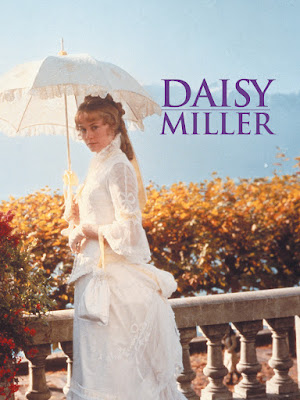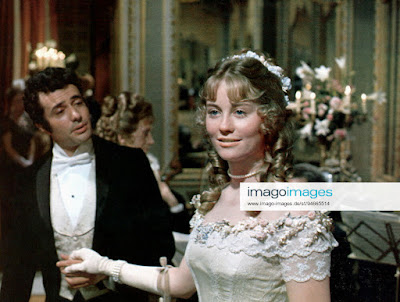Even before this film came out Peter Bogdanovich
seemed to realize that he had made a mistake in making it. That it was not
commercial enough. He was part of a directors group under Paramount and when
he told the other directors (Friedkin and Coppola) that he was going to direct
this film, they all advised him not to. After three big hits in a row
they thought it was basically a vanity project for his then girlfriend Cybill
Shepard. When he showed the film to Paramount and asked for their opinion
they said it was ok. A bunt. The reviews were mixed and the film began his
series of box office failures. I enjoyed They All Laughed and At Long Last
Love among these flops but this one deserved it. At 90-minutes it is just
turgid and trudges along to nowhere without a spark of emotion. Duller than
an old butter knife. Bogdanovich seemed to think that Shepard in period costumes
and a coy smile was enough to carry the film. Perhaps if you were in love
with her as he was.
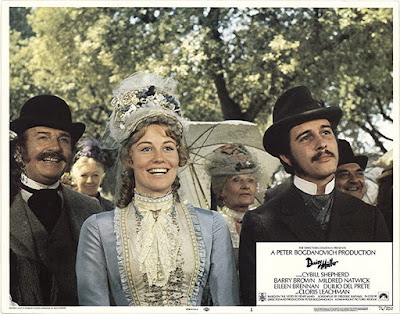
It is based on a Henry James novella and pursues a theme that James often
went to. Americans abroad. He was an American ex-pat himself spending much
of his life in England and on the Continent. He found the clash of cultures
- old world vs new world fascinating. Americans with their egalitarian ideas
and lack of proper polish and manners were fish out of water. Over time some
like James and some of the characters in his books adjust to European ways
and then they are welcomed into society. His books The Ambassador and The
Portrait of a Lady also fall into this genre.
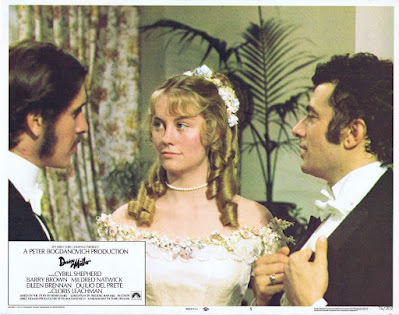
Daisy Miller (Cybill) and her mother (Cloris Leachman) and her younger brother
(who should have been drowned at birth) are touring Europe away from
their home in Schenectady New York. Daisy is a flighty flirty head strong
young woman who talks so fast that greyhounds could not catch her words.
In Vevey she meets another American, Frederick Winterbourne (Barry Brown)
who just by his name tells you that he is a bit of a priggish stick of the
old school well-mannered in European customs - and of an American class that
he and his aunt (Mildred Natwick) consider the Millers beneath them. But
even so, he finds himself attracted to her joy of life and her refusal to
bend to what is expected of her. Also horrified. He later follows her to
Rome where she has taken up with an Italian (Duilio Del Prete) and Winterbourne
continues his pursuit but is unable to tell her so - because of the scandal
that she has created by being seen alone on walks with the Italian but also
by their class differences. Daisy is an enigma - stubbornly unwilling to
play the good girl but is in fact quite innocent. The only explanation that
Winterbourne can give Mrs. Walker (Eileen Brennan) who is shocked by her
actions is "She is American".
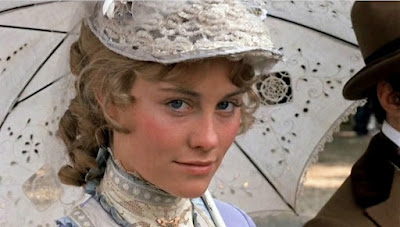
Cybill Shepard just doesn't fit nicely into period films. She is too modern
in her speech and seems unable to change that. In this, At Long Last Love
and The Lady Vanishes she is totally unconvincing as a person from that period.
Here she is a non-stop chatterbox like she is playing opposite Cary Grant
in His Girl Friday. I expect that is supposed to be charming but in
a period film in the 1800s it makes no sense. It would in truth drive any
one nuts within minutes. And Barry Brown is just there. He takes up the needed
space but adds nothing. Sadly, he was a very unhappy fellow taking drugs
and alcohol and shot himself to death in 1979. Bogdanovich's next film was
Nickelodeon which also flopped and which I will skip to get to the one after
that Saint Jack.
